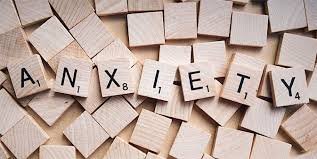Anxiety is a disorder that involves repeated episodes of sudden feelings of intense fear or terror that reach a peak within minutes. Avoiding it is the most natural human response. We know that if we stay away, we feel safe. But avoidance not only maintains anxiety; it makes it worse over time.
Your brain learns like a scientist. Each time you are anxious, it clocks that as evidence for its beliefs. If you avoid what you fear, you never give yourself the chance to build up evidence in mind that you can get through it and survive. Just telling your brain that something is safe is not enough. You must experience it.

Here is a list of some common safety behaviors that ease anxiety at the moment but keep us stuck in the long term.
1. Escape:
Whether in a social situation, the supermarket, or a confined space, when anxiety hits, we have the urge to get out of there as quickly as possible.
2. Anxious avoidance:
The moment you say no to that invitation to avoid the social situation, you get that instant relief. Phew! I don’t have to face that feeling today. But the longer you stay away from something, the more the fear seems to grow. Then the day comes that you need to face it once again, and it now feels overwhelming.
3. Compensatory strategies:
This can happen after experiencing a high anxiety state; someone with a fear of contamination or sickness may wash excessively after being in a hospital setting
4. Anticipation:
It is also called sensitization; this is when we rehearse and anticipate various worst-case scenarios that may occur in a feared situation. We are often convinced that it is helping because it will protect us if we are prepared, but it can lead to hyper-vigilance and excessive worry without constructive planning, which leads to increased anxiety.
5. Reassurance seeking:
In moments of anxiety and doubt, we may ask for reassurance from a loved one that everything will be fine. It is hard to see a loved one in distress, so they are often more than willing to use reassurance to help calm the anxiety. But over time that instant relief can become addictive, and we develop a dependency on that other person. We may need almost constant reassurance or feel unable to leave the house without being accompanied by the person who makes us feel safe, which can weigh heavily on a relationship.
6. Safety behaviors:
We can also come to rely on things that we associate with safety. If we don’t trust ourselves to be able to cope when anxiety hits. We may feel unable to go anywhere without “just in case” medications. We take a mobile phone everywhere because looking down at it enables us to avoid conversation at social events.
Tools to calm anxiety down:
- Breathing: Long breaths play a huge role in bringing your anxiety down. Straw or pursued lip breathing decreases stress, anxiety and calms your mind.
- Meditation: Meditating 3 times a day for 20 minutes each can help to reduce anxiety and calm the mind
- Movement:
This tool requires little practice to master and exercise. When your anxiety response is triggered, your muscles fill up with oxygen and adrenaline, ready to move fast. If you don’t move and burn off the fuel, your body is like a rocket with engines firing and nowhere to go.
Exercise is one of the best anxiety management tools because it follows the natural course of your threat response. Your body is geared to move. Allow it to do that, and your body can use up the energy and stress hormones it has produced and rebalance.
Your brain likes to be in a comfort zone, so you need to repeat that behavior again and again, as many times as it takes. The things you do most of the time become your comfort zone. So, if you want to feel less anxious about something, do it as often as you can. Use the skills to help you sit with anxiety, and it will reduce over time.
When we do it repeatedly, a sense of growth develops in us. Over some time, you make decisions based on the life you want to live instead of living with fear.
“our anxiety does not empty tomorrow of its sorrows, but only empties today of its strength.” C H Spurgeon